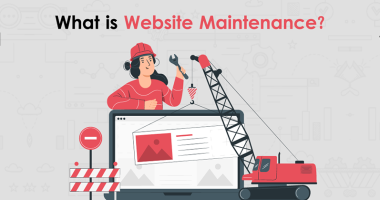Table of Contents
- Introduction
- Shopify
- WooCommerce
- Magento
- Comparing Shopify, WooCommerce, and Magento as eCommerce Platforms
- Conclusion
The main differences between Shopify, WooCommerce, and Magneto lie in hosting, flexibility, and complexity. Shopify is a hosted, all-in-one e-commerce solution ideal for ease of use and quick setup. WooCommerce is a WordPress plugin offering flexibility and customization for self-hosted sites. Magento is a powerful, open-source platform suited for complex, large-scale stores but requires technical knowledge to operate. .
Introduction
Shopify, WooCommerce, and Magento are the three most prominent e-commerce platforms currently available. There are benefits and drawbacks to using each of these platforms.
Which one do you think is best suited for your online store?
You must examine every facet of each platform to determine which one is best suited to the nature of your company and the things you hope to accomplish in the future. In this blog, we will compare Shopify, WooCommerce, and Magento. Dive in to find which best suits you.

Shopify
Shopify is a hosted eCommerce platform that provides users with an all-inclusive solution for establishing and maintaining their online stores. Shopify’s popularity stems from the company’s user-friendliness, robust feature set, and helpful customer service. The fact that Shopify handles all the technical facets of managing an online store for you is one of the key benefits of using it. As a result, you won’t have to fret over technical details like hosting, security, or coding and can concentrate on growing your business.
The scalability of Shopify is another key benefit. It’s simple to switch to a more robust Shopify package as your company grows.
WooCommerce
WooCommerce is a WordPress plugin that transforms your site into an online store. Because it’s reasonably simple to set up and use, WooCommerce is a well-liked choice for startups and small companies. While you will need to pay for hosting and a domain name, using WooCommerce is advantageous because it is free to install and use. The abundance of plugins and themes for WooCommerce makes it extremely flexible.
WooCommerce, unlike Shopify and Magento, has several limitations when it comes to scalability. Therefore, if you expect rapid business growth, you may eventually need to transition to a new platform.
Magento
Magento is an open-source e-commerce solution that provides store owners with a wide range of options for creating and maintaining online stores. Magento is well-liked by larger enterprises and organizations because it can be tailored to meet their specific requirements. However, you may find Magento a bit complicated to work with if you aren’t a developer or technical specialist.
Unlike Shopify, Magento does not provide hosting or support services. You’ll have to source your hosting service and deal with any technical issues that arise on your own
Comparing Shopify, WooCommerce, and Magento as eCommerce Platforms
Many store owners said Shopify was the easiest platform. Shopify’s drag-and-drop store builder and built-in features make business management easy.
- Select from pre-made designs.
- The templates’ responsive design makes your website compatible with PCs, tablets, and smartphones.
- Pre-set online payments. No credit card information is needed. You can also sell to Facebook friends.
| Shopify | WooCommerce | Magento | |
| Usability | One may need a WordPress hosting company to implement these before using WooCommerce:
The on-screen setup wizard appears after installing and activating WooCommerce. It lets you configure store parameters |
Magento is challenging to use. This platform doesn’t offer on-site website developers.
|
|
| Safety | Provides all required safety measures.
|
It is a self-hosted solution, unlike Shopify, therefore you must handle its security.
|
Magento is secure if you have enough developers and hosting services.
|
| Scalability | Performs well in website speed and performance. When your store grows, Shopify’s scalability may be a problem, you will need to switch to Shopify Plus. | Offers scalability, although those without efficient coding skills may struggle to scale their store sites. | Magento 2.0 offers complete performance and scalability improvements:
|
| Design |
|
|
|
| SEO Features |
|
|
Magento is the most SEO-friendly eCommerce platform. Businesses may improve SERP rankings using the platform’s features and extensions.
|
| Customer Support |
|
|
|
| Plugins | Shopify has hundreds of free and paid apps and additions to choose from. Most plugins are easily added. These enable trust icons to reduce shopping abandonment and social buttons to build a community. | Users can access over 56,000 WordPress plugins in addition to Woocommerce’s 400 custom extensions.
These add-ons can customize your site for business. Additionally, a developer can create a plugin for your site. |
Magento has the strongest eCommerce marketplace. Its marketplace has approximately 6,000 free and paid plugins to help you optimize your shop.
Magento offers solutions for content & customization, accounting & finance, payments & security, site optimization, marketing, customer care, and more. |
Conclusion
After comparing and contrasting these three e-commerce platforms using a variety of factors, it is possible to draw conclusions. Shopify is the most efficient platform for small businesses seeking to develop their online presence. WooCommerce can successfully empower small and medium-sized enterprises. Magento, due to its flexibility, is the best solution for large enterprises.
FAQs
Which Platform Is Best for E-Commerce?
Every e-commerce website-building platform brings something new to the table. If you have a small store and want to grow your online business, Shopify is the right choice for you. For SMEs, WooCommerce is more effective. And Magento is more suitable for large enterprises.
Magento has more extensions than Shopify. However, you will find more polished apps on the Shopify app store. WooCommerce, on the other hand, requires extensions and WordPress Plugins. So, the answer may vary from one person to another.
Which Is the Best E-commerce Platform for Beginners?
Among the top three e-commerce platforms - Shopify, WooCommerce, and Magento - Shopify is considered the easiest to build an online store on. It is ideal for beginners who are looking for low-cost solutions. You can find a wide range of Shopify apps that can help you enhance your online store operations.
When compared to WooCommerce, Shopify seems way less technical, and anyone with limited knowledge can use it. You do not need coding skills to operate on Shopify.
Which Is Better, Magento 2 Or Shopify Or Woocommerce?
It is difficult to tell which one is better. Let’s compare them based on certain features:
- User-friendliness: Shopify is considered the most user-friendly platform among the three. Both WooCommerce and Magento require a certain level of knowledge.
- Security: Shopify offers all the major security features, but you need to manage the security yourself for WooCommerce. Magento is the most secure platform on the list.
Design and Customization: Shopify offers high-quality themes that are optimized for mobile devices. WooCommerce offers unlimited customization. Magento only offers two default themes.







